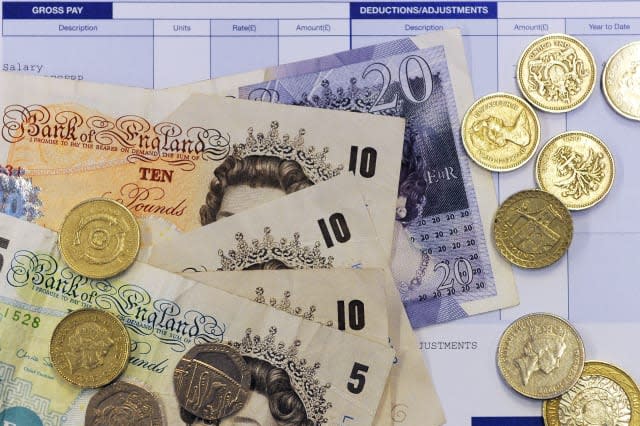Zero hours contracts spark 5 million debt problems

A new study has revealed that millions of people are facing problem debts because the amount they earn varies from month to month. It makes it impossible to budget, difficult to pay essential bills, and means in many cases people cannot afford to meet debt repayments either.
The research, by the Debt Advisory Centre, found that 11 million people have incomes that vary from month to month. In many cases this is down to them being on zero hours contracts - but can also be due to those whose overtime hours fluctuate, people on variable contracts and the self-employed. Overall it means that one in five Brits face fluctuations in their income.
Among younger people, the problem is even more striking: 42% of people aged between 18 and 24 have variable incomes.
The problem
These fluctuations make it very difficult to meet monthly payments, such as the rent or mortgage and utilities. Of those who have a variable income, 44% find it difficult to keep up with their regular bills. This is particularly the case when in some weeks their income falls below the sums they need to meet their essential outgoings.
Those on variable incomes also struggle to keep up with regular credit commitments such as credit card and loan repayments. Overall 41% of people have problems meeting debt repayments.
Debt Expert, Melanie Taylor for Debt Advisory Centre, points out: "Ideally, people need to put money aside as savings in the good months to tide them over during the learner times – but this isn't always possible."
In some cases, they have held back vital spending in leaner months, so when they have a bit more money coming in, there is essential home maintenance to pay for, new school shoes, or debt repayments to make up for. They're essentially always playing catch-up.
In other cases, it proves impossible to guess what will be coming in the following month, and by the time you realise you're set for a tricky month, the extra cash is already spent. As Taylor says: "Budgeting for essential bills and debt repayments becomes much harder when you don't know what you'll bring home next week or next month."
In the worst case scenario, she says: "We've seen people resort to using short term credit to get them through in leaner times, which often just stores up a bigger problem further down the line."
What can you do?
The answer lies partly in how you budget. You need to have a clear understanding of your essential outgoings, and the order in which they need to be paid. So, for example, the mortgage is non-negotiable, so needs to be paid. Bills, are also clearly essential, but come further down the list, because the consequences of late payment are lower. As the money comes in, you can pay for your essentials in this order.
Once the essentials are covered, it's easy to see the rest of your pay packet as disposable cash. However, you need to save as much of it as possible as a safety net for the leaner months - when you can't afford the essentials. Only once your safety net could take you through three difficult months should you start seeing the additional cash as yours to spend as you wish.
If you keep falling short, then you need to think about alternative sources of income. The trouble with things like zero hours contracts is that you often cannot take a second job, because you don't know when they will clash. It means considering making money through something more flexible - such as working as an Uber driver, renting out a room on AiBNB, taking tasks on for the likes of Task Rabbit, renting out your driveway, or taking in a lodger.
In an ideal world, of course, the answer would be to get a job with regular hours where you can guarantee a decent income every month, but that may be asking too much of the jobs market.




